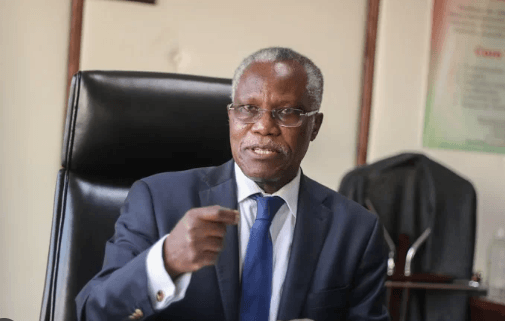
The Ethics and Anti-Corruption Commission (EACC) has recommended that all police officers receive training in traffic management.
In a report published following a review of National Police Service (NPS) systems, the commission also advised the Inspector General of Police to consider reorganising the traffic function to report through the unified Kenya Police Service command structure—from station to ward, sub-county, county, regional levels, and up to the Deputy Inspector General.
The move aims to enhance transparency, accountability, and reduce operational silos.
“Ensure that all officers are trained in traffic management, and that traffic duties are treated like any other general duty role, with all officers included in the duty rota,” the report states.
The report highlights concerns over the handling of fees by traffic police officers, noting that Public Service Vehicles (PSVs), including matatus, and boda boda riders were sometimes required to pay predetermined amounts, often through their respective Savings and Credit Cooperative Organisations (SACCOs).
Failure to remit payments has reportedly led to arrests or charges.
The commission observed that these practices could constitute extortion and corruption. It recommended the establishment of an internal intelligence and oversight mechanism to detect, investigate, and discipline officers involved in the misuse of authority.
This should be supported by a confidential reporting system, routine audits, and collaboration with independent oversight bodies to enhance accountability.
The report further recommended regular and impromptu sting operations at identified hotspots, deployment of technology such as body-worn cameras to record officers’ activities, and strict disciplinary measures, including prosecution where appropriate, to deter misconduct.
It noted instances where some officers reportedly remained at certain stations for extended periods, leading to excessive familiarity and the creation of informal personal networks.
Some officers from general duties were found to have occasionally assumed traffic roles outside their designated areas without undergoing formal training.
The report also raised concerns about officers transferred from traffic units without undergoing disciplinary processes, noting that such practices could undermine public confidence and the effectiveness of law enforcement.
“These issues can affect the public perception of the National Police Service and may reduce public trust and cooperation, ultimately impacting law and order,” the report states.
The EACC presented the Report of the Examination into the Systems, Policies, Procedures, and Practices of Work of the National Police Service on Thursday, November 13, 2025, at the National Police Leadership Academy.
The examination, conducted between February 10 and June 13, 2025, was supported by the United Nations Office on Drugs and Crime (UNODC) under the Legal Empowerment and Aid Delivery in Kenya (PLEAD II) programme, funded by the European Union (EU).
The study assessed NPS systems, policies, procedures, and practices for vulnerabilities to corruption, evaluated compliance with laws and regulations, and provided recommendations to strengthen accountability and service delivery.
It covered core and support functions, including the Offices of the Inspector General and Principal Administrative Secretary, the Internal Affairs Unit, Kenya Police Service, Administration Police Service, Directorate of Criminal Investigations, and NPS staff training colleges.
The report acknowledged that despite challenges, the NPS continues to play a critical role in maintaining safety and security in Kenya.
It also noted that financial autonomy allows the service more responsively resource allocation and highlighted ongoing collaboration with civil society, media, and governance institutions in promoting a just and transparent society.

















